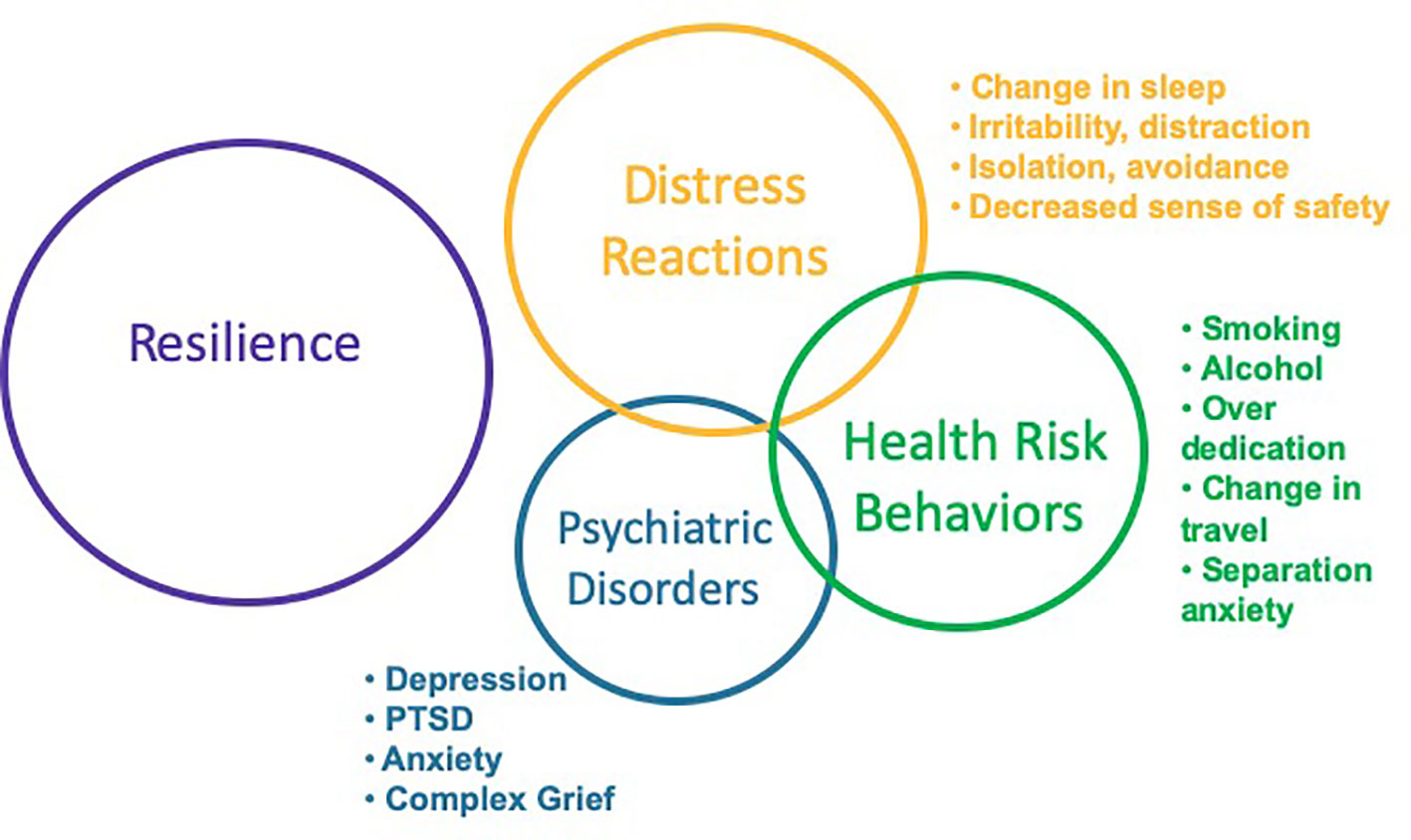What Do We Know?

Why Does This Happen?
The nature of first responders’ work exposes you to daily trauma, death, injury, and loss, coupled with physically challenging job requirements and a lack of safety and security in certain work situations. These factors can put you at a higher risk for trauma and struggles with your mental well-being
BEHAVIORAL AND MENTAL HEALTH ISSUES ARE NOT WEAKNESS. THEY ARE AN OCCUPATIONAL HAZARD
Practice resilience building and strengthen your emotional hygiene to protect yourself against mental and behavioral health concerns

WHAT IS RESILIENCE?
Resilience is the process of adapting well in the face of adversity, trauma, tragedy, threats, or even significant sources of stress. Resilience exists when a person can bounce back and thrive from major challenges. Resilience can be developed, maintained and enhanced so you are able to manage the daily occupational hazards of your profession.
For More information on Resilience or watch Surviving the Job: Emotional Self Care for First Responders-SPONOSRED BY VFIS
METHODS TO MAINTAIN & ENHANCE YOUR RESILIENCE
Manage Your Physical Health
- Sleep about 7 hours a night
- Physical Activity- minimum of 3 times a week and about 30 minutes at a time, even 2- 15 minutes walks can have great benefit
- Brief power naps during the day can help
- Add movement to your work time. Do not sit still all the time
- Eat brain healthy nutrition (vegetables, fruits, nuts, whole grain
breads, proteins, etc.) - Reduce junk/processed foods/sugar in your diet
- Limit/avoid alcohol
- Avoid non-prescription drugs
Contact EAP to Set Up an Appointment with a Nutritionist
Utilize Stress Management Tools
- Box Breathing Technique
- 5-4-3-2-1 Grounding
- Yoga for First Responders: 5 Strategies To Release Stress + Trauma (yogajournal.com)
- Podcast: Managing Stress as a First Responder – Unified Fire Authority
- Stress Management for Emergency Responders Understanding Responder Stress
- Practice Self Care- Take5tosavelives
- WeNeverWalkAlone– Free App
Social Supports and Activities
- When you are stressed it normal to pull back from those around you but people can be one of the greatest ways to combat your workplace stress. Set up fun activities or social gatherings and keep these
- Have contacts with social groups both on and off the job
- Reach out to peer support as needed
- Compliment others
- Be a friend to others
- Spend more time with happy people; avoid the chronically unhappy people
Work on your Quality of Life
- Substitute positive thoughts for negative ones. “I can handle this”
instead of “I am doomed” - Maintain optimism even with the odds against you. Try to find something that is positive or an advantage
- Smile more
- Compliment others
- Be a friend to others
- Morning Gratitude: Upon waking, say five basic things you are thankful for such as: I am thankful I slept in a bed, I can stand up and walk, I can get coffee out of my kitchen, etc
- Journaling: The purpose of the exercise is to think back on the past day, few days, or week, and remember 3-5 things you are especially grateful for. In this way, you are completely focusing on all the good things that happened to you in a given set of time.
- Delightful –Gratitude Journal & 3 Good Thing – Free App
OTHER RESOURCES
C&FS EAP –If you would like some support in developing your resilience, call EAP at 716-681-4300, and we will schedule a session with an EAP Counselor to build up your protective factors
Talk2EndStigma- Resources for First Responders
Home | Safe Call Now (safecallnowusa.org) – 24 hour confidential crisis line for first responders, call 1-206-459-3020 for support.
Call us at 716-681-4300 Request EAP Services Here